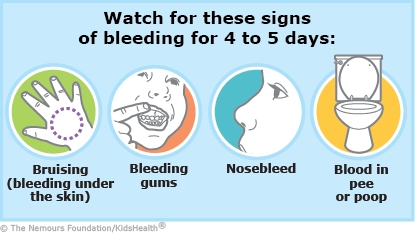After Swallowing Rat Poison: How to Care for Your Child
Most types of rat poison rarely cause serious problems in kids. However, children who swallow rat poison usually need to be watched for a few days.


Swallowing rat poison is a common cause of accidental poisoning in children 6 years old or younger. There are many different types of rat poisons, but the most common ones kill rodents by causing them to bleed or by increasing calcium, which affects the heart.
Usually, kids do not swallow large enough amounts of rat poison to become seriously ill. If your child has only had a small taste of rat poison, treatment might not be needed.
The effects of rat poison might not be seen for a few days. Possible signs include nosebleeds, bleeding gums, bruising, weakness, and tiredness. In severe cases, seizures may occur.
Depending on the type of rat poison your child was exposed to, the health care provider likely ordered blood tests to check calcium and other electrolytes or to see how your child's blood is clotting. These tests will likely be repeated in a few days so your health care provider can compare the results and check for any problems that have developed. Your child also might have been given a vitamin K supplement to prevent bleeding issues.

-
If prescribed, give your child vitamin K and any other medicines as instructed.
-
Watch your child for any signs of bruising or bleeding for about 4–5 days.
-
Have any repeat blood work drawn as instructed.


Your child:
-
Seems tired, weak, or pale.
-
Develops behavior changes.
-
Is vomiting.

Your child:

Always keep rat poison and other chemicals out of your child's reach. Never store it in containers that were once used for food.